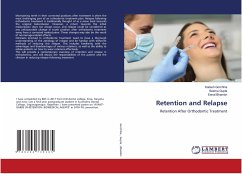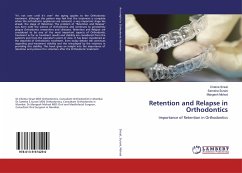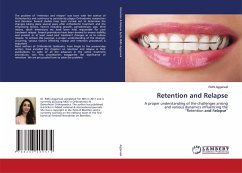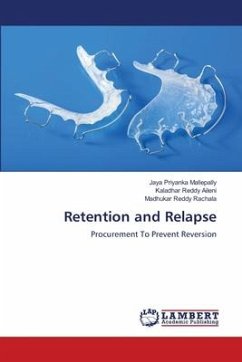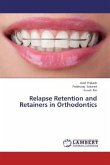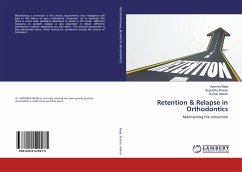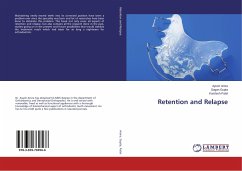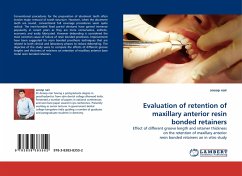Maintaining teeth in their corrected positions after treatment is often the most challenging part of an orthodontic treatment plan. Relapse following orthodontic treatment is traditionally thought of as a move back towards the original malocclusion. However, a return towards the initial malocclusion does not always occur, and relapse could be considered as any unfavourable change in tooth position after orthodontic treatment away from a corrected malocclusion. These changes may also be the result of normal age-related effects.Clinicians involved in orthodontic treatment need to have a thorough understanding of the aetiology of relapse and be familiar with different methods of reducing this relapse. This includes familiarity with the advantages and disadvantages of various retainers, as well as the ability to advise patients on how to wear retainers effectively.This will provide a contemporary overview of retention and relapse in orthodontics, and will discuss the responsibilitiesof the patient and the clinician in reducing relapse following treatment.

